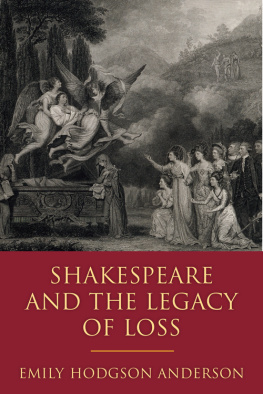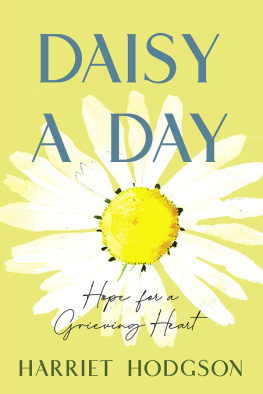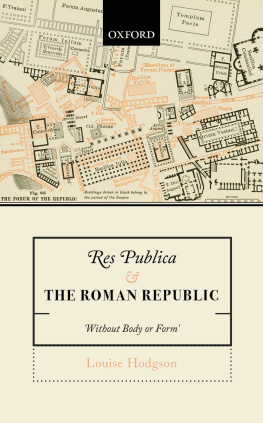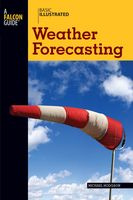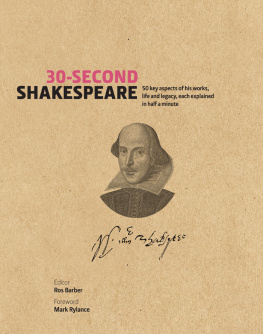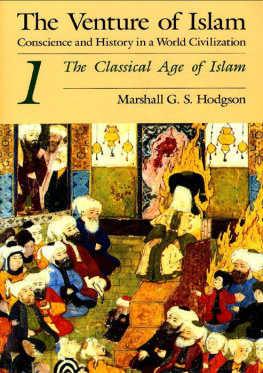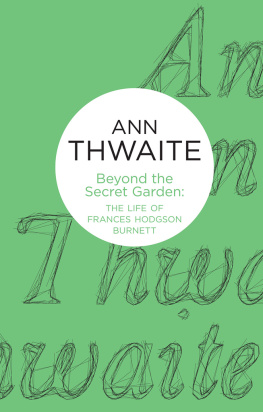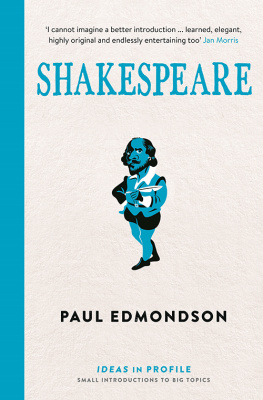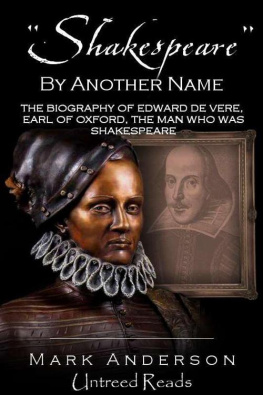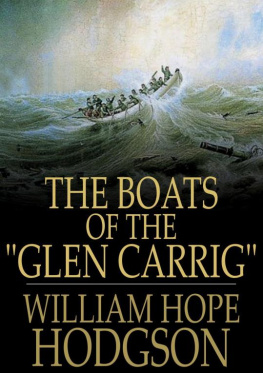Emily Hodgson Anderson - Shakespeare and the Legacy of Loss
Here you can read online Emily Hodgson Anderson - Shakespeare and the Legacy of Loss full text of the book (entire story) in english for free. Download pdf and epub, get meaning, cover and reviews about this ebook. year: 2018, publisher: The University of Michigan Press, genre: Home and family. Description of the work, (preface) as well as reviews are available. Best literature library LitArk.com created for fans of good reading and offers a wide selection of genres:
Romance novel
Science fiction
Adventure
Detective
Science
History
Home and family
Prose
Art
Politics
Computer
Non-fiction
Religion
Business
Children
Humor
Choose a favorite category and find really read worthwhile books. Enjoy immersion in the world of imagination, feel the emotions of the characters or learn something new for yourself, make an fascinating discovery.
- Book:Shakespeare and the Legacy of Loss
- Author:
- Publisher:The University of Michigan Press
- Genre:
- Year:2018
- Rating:4 / 5
- Favourites:Add to favourites
- Your mark:
- 80
- 1
- 2
- 3
- 4
- 5
Shakespeare and the Legacy of Loss: summary, description and annotation
We offer to read an annotation, description, summary or preface (depends on what the author of the book "Shakespeare and the Legacy of Loss" wrote himself). If you haven't found the necessary information about the book — write in the comments, we will try to find it.
Shakespeare and the Legacy of Loss — read online for free the complete book (whole text) full work
Below is the text of the book, divided by pages. System saving the place of the last page read, allows you to conveniently read the book "Shakespeare and the Legacy of Loss" online for free, without having to search again every time where you left off. Put a bookmark, and you can go to the page where you finished reading at any time.
Font size:
Interval:
Bookmark:
 Page i
Page i Emily Hodgson Anderson
University of Michigan Press
Ann Arbor
Page ivCopyright 2018 by Emily Hodgson Anderson
All rights reserved
This book may not be reproduced, in whole or in part, including illustrations, in any form (beyond that copying permitted by Sections 107 and 108 of the U.S. Copyright Law and except by reviewers for the public press), without written permission from the publisher.
Published in the United States of America by the
University of Michigan Press
Manufactured in the United States of America
A CIP catalog record for this book is available from the British Library.
ISBN 978-0-472-13093-1 (hardcover : alk. paper)
ISBN 978-0-472-12412-1 (ebook)
To Owen and Dylanyou have my heart
Page vi Page viiFor Garrick, the master of passion, retired,
And Nature and Shakespeare together expired
Charles Burney, Memoirs of Doctor Burney (1832)
The life of a favourite performer... glances a mortifying reflection on the shortness of human life.
William Hazlitt, On Actors and Acting (1817)
Page viii Page ix- Page x
As I discovered anew over the years it took to complete this project, writing books, like acting, is a collaborative project that weaves together various spots in time. Many lives (and memories) are intertwined with the writing of this book, and Im happy to be able to reflect on those relationships here.
First, I owe a great debt of thanks to my colleagues at the University of Southern California. Thank you to the office of the Dean of USC Dornsife for supporting my research through a generous publication subvention grant, and to the Early Modern Studies Institute at USC and its Director, Peter Mancall, for a summer fellowship in the early stages of this project and for later assistance with research funds, a portion of which enabled me to employ an absolutely stellar research assistant. Amanda Ruud, this assistant, deserves special commendation for her tireless and immaculate work on various stages of manuscript preparation. Numerous colleagues in my department read portions of this manuscript and provided feedback at talks: Paul Alkon, Joseph Boone, Devin Griffiths, Heather James, Rebecca Lemon, Margaret Russett, Hilary Schor, Bruce Smith. My chair, David St. John, provided various types of support at crucial stages during my research, and my USC students, graduate and undergraduate, stimulated my thinking along the way: thanks especially to Meli Farman for giving me the actors point of view. Thanks, too, to the USC Provosts Office for supporting me at the very beginning of this process with an Advancing Scholarship in the Humanities and Social Sciences fellowship.
Page xii Im fortunate to have the support of numerous colleagues at UCLA, including those in attendance at the Southern California eighteenth-century reading group and most particularly Helen Deutsch, Sarah Kareem, and Felicity Nussbaum, all of whom have been wonderful readers and amazing friends. Ive also had the privilege of codirecting, with Felicity, an eighteenth-century seminar at the Huntington Library for the past ten years, and that seminar, with its many speakers and audience membersamong them Lisa Freeman and Danny OQuinninfluenced my argument as it developed. Thank you to Steve Hindle, Director of the Huntington, for hosting our colloquium, and to Peter Mancall and the Early Modern Studies Institute at USC, for funding it. Thanks to my American Society for Eighteenth-Century Studies colleagues, near and far, for their comments over the years: Brad Pasanek, Sean Silver, Susan Carlile, Nush Powell, Jayne Lewis, Bob Folkenflik, Danny OQuinn, Susan Lanser, Lisa Freeman, Julia Fawcett, Stuart Sherman, Jon Mee, Bill Warner, Katie Charles, and Taylor Walle. Thanks to Lisa, Helen, Jayne, Felicity, and Stuart, for writing me many letters over the years, sometimes at the eleventh hour.
My Yale classmates, colleagues, and friends still provide my intellectual foundation: Joseph Roach, who read in its entirety an early draft of this manuscript and whose influence is everywhere apparent; and Jill Campbell, who with Joe helped shape me as a young scholar. I number Jessica Leiman, Emily Setina, and Ayesha Ramachandran among my most important readers and friends. Deborah Friedell remains the undergraduate student Im most happy to have met.
Im grateful to my editor at the University of Michigan Press, LeAnn Fields, for her interest in this project and to Jenny Geyer and the entire staff at Michigan for their prompt and professional handling of the manuscript. My two anonymous readers for the press gave me the most helpful, generous, and engaged reports Ive ever received, and the book is far better for their input. Portions of chapter 3 previously appeared in Eighteenth-Century Fiction; portions of chapter 5 previously appeared in PMLA. I thank both journals for the permission to republish that material here.
Finally, my family remains the glue that holds the rest of my life together. I thank my parents, John and Susan Hodgson, for their unflagging support, Tater for her love and snuggles, and Owen and Dylan for making me a mother and showing me every day how to live in the present. I love you boys so much, and I dedicate this bookalbeit one without pictures of fire trucksto you.
Page 1David Garrick died on 20 January 1779. In the days before his funeral, over fifty thousand people visited his home at Adelphi Terrace to see his remains. The funeral, celebrated on 1 February 1779, was a similarly elaborate affair. The procession of Garricks body, from Adelphi to its final resting place in Westminster Abbey, was accompanied by upwards of thirty mourning coaches, followed by twice the number of gentlemens carriages, and the route of the procession was jammed with thousands upon thousands of spectators, more people present... than were ever remembered to have been collected since the coronation.
But Garrick was no king. Instead, he was an actor, indeed the preeminent Shakespearean actor of his day. He was a theater manager, controlling from 1747 to 1776 one of the two major patent theaters in London, Drury Lane. He was a playwright, enriching the stage with such new compositions as The Clandestine Marriage (1766) and The Jubilee (1769). He was a mentor to other aspiring playwrights and actors, such as the actress Mary Robinson and the playwright Hannah More, and sometimes the gatekeeper who kept others (such as Frances Brooke) from advancing Page 2 in their careers. As the scope of his funeral would indicate, he was no obscure figure, nor has he become one. He has been a popular biographical subject, from his own day to the present, and he remains much studied, especially by those interested in the history of the British stage.
Yet if little about his life needs to be unearthed, returning to his death, and his career-long interest in Shakespeare, holds new potential for reshaping how we think about a struggle that obsessed Garrick while yet alive: the conflict he faced, as an actor, with the fleeting, ephemeral nature of his art. Pity it is, the actor and poet Colley Cibber would write, a year before Garrick would make his theatrical debut, that the animated Graces of the Player can live no longer than the instant Breath and Motion that presents them. Acting in the era prior to any form of recording, and obsessed with fame, Garrick predicated his desire to live forever on an art form he knew could not be preserved.
Next pageFont size:
Interval:
Bookmark:
Similar books «Shakespeare and the Legacy of Loss»
Look at similar books to Shakespeare and the Legacy of Loss. We have selected literature similar in name and meaning in the hope of providing readers with more options to find new, interesting, not yet read works.
Discussion, reviews of the book Shakespeare and the Legacy of Loss and just readers' own opinions. Leave your comments, write what you think about the work, its meaning or the main characters. Specify what exactly you liked and what you didn't like, and why you think so.

